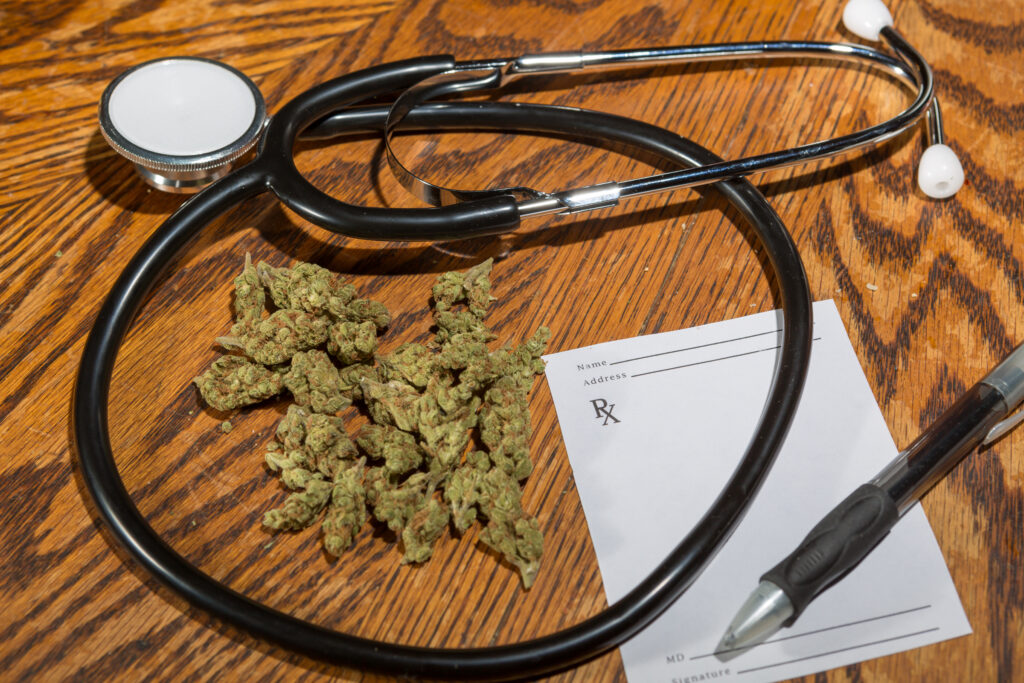Indiana’s incoming governor said this week that it’s “probably time” to legalize medical marijuana in the state—a reform that, according to a new survey, nearly 9 in 10 residents support.
“It’s probably time for it to have found its way to Indiana—on the medical side,” Gov.-elect Mike Braun (R) told local reporters this week. Medical cannabis is already legal in all four states bordering Indiana: Michigan, Illinois, Ohio and Kentucky. All but Kentucky have also legalized marijuana for adult use.
Braun’s comments to WEHT-TV come as the governor-elect touts his so-called “freedom and opportunity agenda,” which also aims to lower taxes and reduce health care costs.
Separately, a new poll of Indiana adults from Ball State University finds that 62 percent of Hoosiers support legalizing both medical marijuana and adult-use cannabis, while another 25 percent support medical-only legalization. Together, that suggests about 87 percent support across the state for medical marijuana reform.
“The growing support for marijuana legalization reflects national trends,” Kevin Smith, interim director of the university’s Bowen Center for Public Affairs that conducted the survey, said.
In his own comments this week, Braun cited earlier polling showing 70 percent support for legalizing medical marijuana. “To me that’s probably a sign that we need to do whatever the smartest method has been among the other 30-plus states that have done it,” he said.
The governor-elect also said that while support for legalization should be taken into account by policymakers, he also believes it’s important that the discussion include perspectives from law enforcement.
Braun had previously indicated he’d be open to medical marijuana legalization, for example during a gubernatorial debate in October. He similarly said at the time that he would weigh law enforcement concerns heavily.
His opponent, Democrat Jennifer McCormick, had said she’d work to legalize medical marijuana before expanding the state system to full adult-use legalization.
Currently a U.S. senator, Braun in that role repeatedly voiced support for medical marijuana while failing to introduce or cosponsor any legislation that would provide patients with access to it.
“I believe, when it comes to medical marijuana, there are too many good reasons why you need to start making that legal for that purpose,” he said in 2019, adding that he feels medical cannabis legalization is “going to cascade through all states more quickly than not.”
He said in debates a year earlier that medical cannabis is about “free markets and freedom of choice” for patients and that “if a state wants to go to medical marijuana, it ought to be their prerogative” to do so.
Braun did, however, file a bill last year to ease restrictions on industrial hemp farmers, but that proposal did not moved forward.
Meanwhile in Indiana, an organization led by the former head of the state’s Republican Party is pushing lawmakers to adopt what it’s calling “safe and regulated” policies on marijuana.
“By embracing a smart and evidence-based approach that prioritizes public health, safety, and economic opportunity, we can give Hoosiers the access that they deserve and demand,” said Joe Elsener, who was previously executive director of the Indiana Republican Party and chair of the Marion County GOP.
A poll published last month by the group, Safe and Regulated Indiana, found that 70 percent of those surveyed in the state either strongly or somewhat supported adult-use legalization. Only 27 percent said they opposed the idea.
It’s not clear whether that’s the survey that Braun was referring to this week. He said 70 percent of Hoosiers support legalizing medical marijuana, but the Safe and Regulated Indiana poll showed 70 percent support for broader recreational cannabis legalization.
“This survey confirms what we already know. Hoosiers are overwhelmingly united behind safe and regulated marijuana policy,” Elsener said at the time. “Indiana voters strongly support legalization for adults 21+ and taxing and regulating marijuana just like alcohol. They want responsible legalization because they know it means safer streets, shutting down drug dealers, and keeping tax revenue here in our state.”



